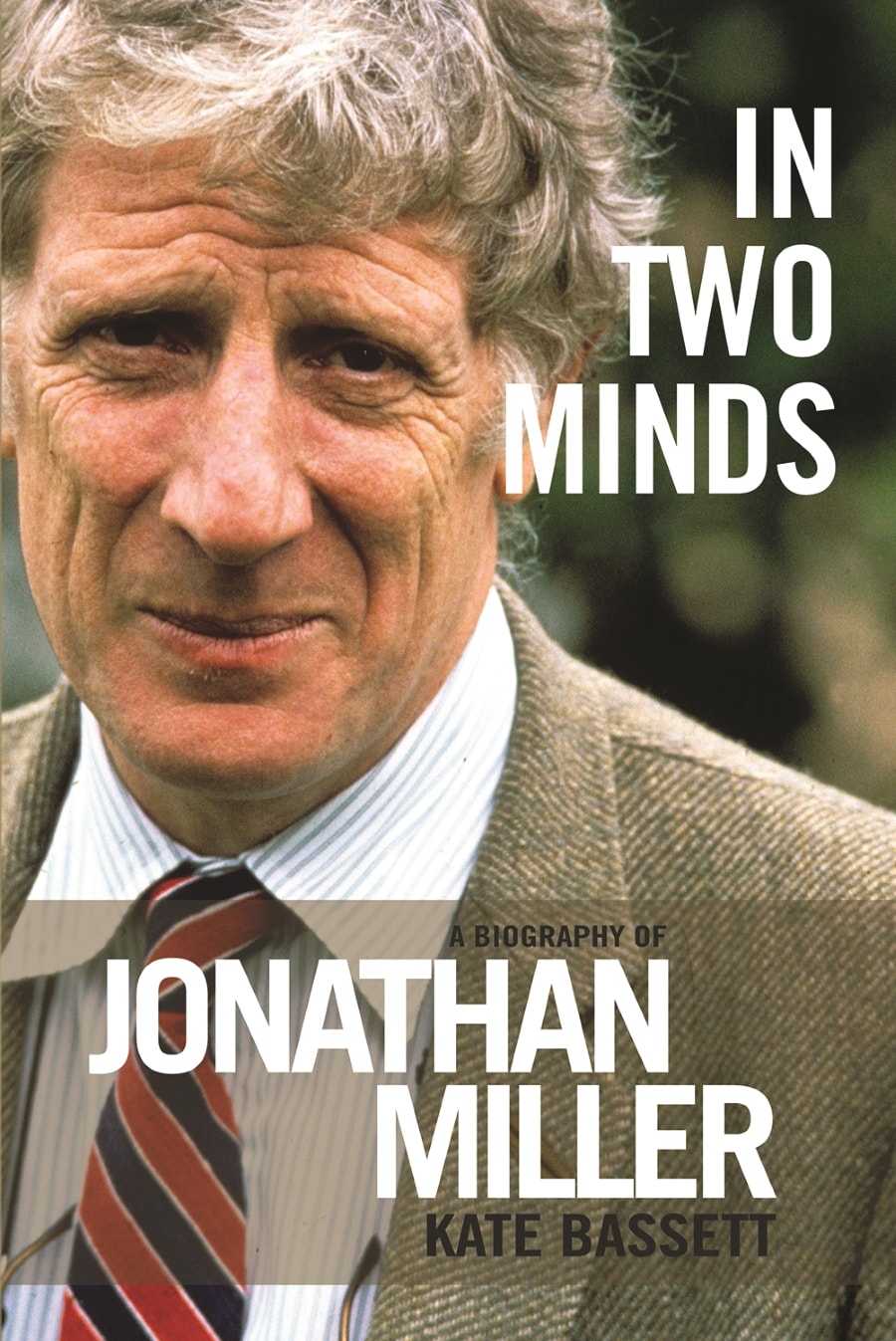It is probably safe to say that Jonathan Miller is the only Tony winner to have performed a televised human autopsy. But such unusual boasts are surprisingly routine for the man London theatre critic Kate Bassett dubs “the best-known polymath of late 20th-century Britain.” Bassett’s biography, In Two Minds, aims to show that, rather than reflecting a split personality, Miller’s multiple personalities (director, doctor, public intellectual) have always been dialectically engaged with each other—practically from the cradle, since he was born (in 1934) to a novelist mother and psychiatrist father.

At Cambridge, Miller officially studied medicine but got sidetracked by the campus comedy troupe (the Footlights), which led to his West End and Broadway debuts in the now-legendary 1960 revue Beyond the Fringe. (Miller’s co-stars were three other unknown lads named Alan Bennett, Peter Cook and Dudley Moore.) The would-be pathologist still insisted on completing his M.D. between rehearsals, but Miller’s career in the theatre had been suddenly, and irrevocably, launched.
But it was as a director that Miller found the perfect platform for synthesizing his many interests by resuscitating classic plays and operas with the incisive mind of a surgeon. As an associate director of London’s National Theatre in the early ’70s, he first developed his signature practice of setting canonical works in striking new historical contexts. He has often favored the period of the author over the stated setting of the script to better reveal the dialogue the play had with its original audience—situating King Lear in Jacobean ideas of monarchy, for instance, or retuning The Magic Flute into an explicitly Enlightenment-era fantasy.
Other times he has brought out the latent dramatic power, and even the fun, of works whose original settings can distract from their inner vitality. Hence his Rigoletto, which swapped Verdi’s medieval cloak-and-dagger milieu for the equally violent world of the ’50s New York mafia, and a Mikado that sidestepped the operetta’s troubling Orientalism with an Art Deco Brighton seaside resort.
Such “updatings” have since become routine, of course, but Miller was among the first to popularize the practice in mainstream institutional theatres and major opera houses. And rather than gimmicky opportunities to dress up old familiar plays in trendier garb, Miller’s directorial concepts have stemmed from his rigorous explorations of art, science and psychology. (He even set a Measure for Measure in Freud’s Vienna.)
And Miller never left his medical calling far behind. His 1978 BBC series The Body in Question introduced the history of medicine to a global audience in an entertaining format and solidified his own presence as a TV “presenter” and perennial “chat show” guest. While such interdisciplinary pursuits won him new accolades and admirers, Bassett reveals that he was also often mocked as overreaching, pretentious and camera-hogging. (The satirical U.K. series “Spitting Image” even showed a puppet-Miller “performing a liver transplant while simultaneously making calls to the ‘National Opera’ and managing a mini-cab service on the side.”)
While doing the valuable scholarly work of documenting Miller’s many significant productions, Bassett is also not above dishing dirt from her many candid interviews with Miller and his colleagues, though she spends the first third of the book on Miller’s childhood and adolescence in mid-century London. (And the additional hundred pages of endnotes and chronologies in the end matter might strike even the most avid Miller-ite as overkill.)
Still, Miller’s extraordinary theatrical life is well worth sharing. At times, his path seems so linked to his own combination of talents that one wonders what others can learn from it. But however sui generis, the good doctor’s genius and vivacity shines through in this book, and will hopefully inspire future polymaths to come forward in theatres—and even operating theatres—around the world.
Freelance drama critic Garrett Eisler is the author of the blog “The Playgoer.” This fall he will be an assistant professor of theatre at Ithaca College.

